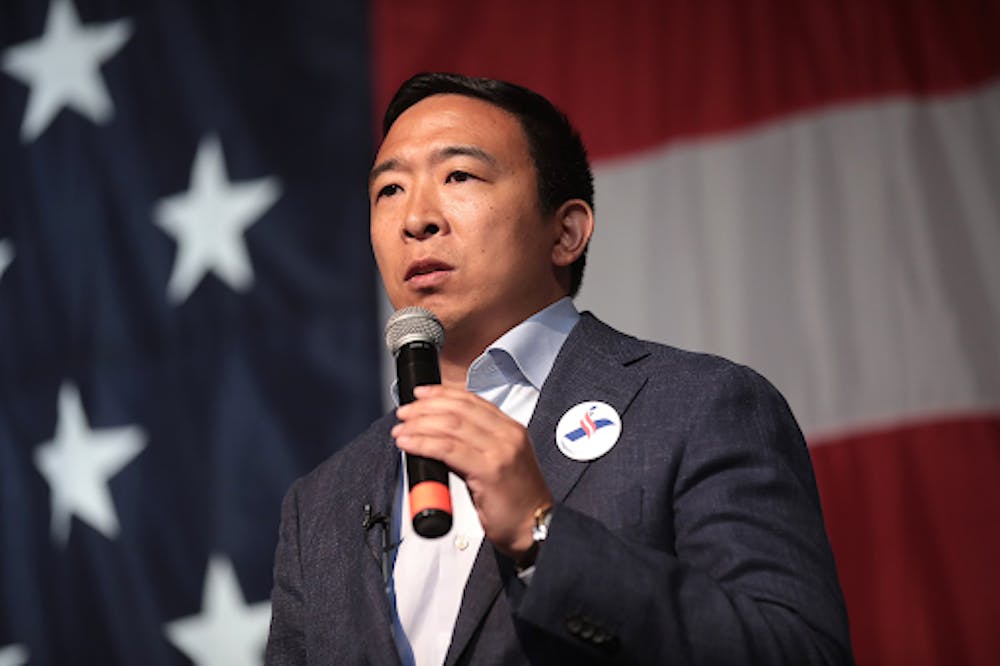On Oct. 15, I attended the Milton S. Eisenhower Symposium sponsored talk featuring Kenan Thompson, the longest-running Saturday Night Live (SNL) cast member. Although the night was mostly filled with laughs, during the question-and-answer section, one student addressed the recent SNL controversy surrounding Shane Gillis.
Gillis was set to join the SNL cast for Season 45, but in September, videos surfaced of him making racial and homophobic slurs in one of his podcast episodes. He was quoted saying “Chinatown’s fucking nuts.... Let the fucking ch**ks live there.” What made the situation worse was that Bowen Yang, an openly gay Chinese American, was joining SNL alongside Gillis. Due to backlash, SNL decided to fire Gillis.
The student asked Thompson for his thoughts on SNL’s decision. Thompson wholeheartedly supported the choice, saying that Gillis’ comments “weren’t funny” and were only hurtful.
I was struck by Thompson’s answer and more notably by how drastically it contrasted with the response of a rising Asian American star: Andrew Yang.
On Sept. 14, after the controversy began, Yang first called Gillis’ remarks hurtful. He then tweeted, “For the record, I do not think he should lose his job. We would benefit from being more forgiving rather than punitive. We are all human.”
I respectfully disagree with the first statement. I believe Yang’s soft stance on Gillis is one of several examples of how Yang fails to stand up for the Asian American community and the representation issues it faces.
For the record, I do believe people can make mistakes and redeem themselves. As an amateur stand-up comedian, I understand that comedians try to be edgy for the sake of comedy, and I’ve definitely said things on stage that went too far. However, in order to earn forgiveness, one must acknowledge one’s mistakes and apologize for them.
Gillis did neither of those things. Instead, he wrote on Twitter:
“I’m a comedian who pushes boundaries. I sometimes miss... I’m happy to apologize to anyone who’s actually offended by anything I’ve said.”
What Gillis is saying is not, “I’m sorry for making offensive remarks,” but rather, “I’m sorry if you are offended by me.”
Whenever I see stories about comedians in trouble, I tend to give them the benefit of the doubt. I know jokes translate badly onto print, so I tried to find Gillis’ original podcast itself. Unfortunately, the full episode had been taken down, so I could only watch the two-minute window in which he used the racial slur.
My sentiments were the same as Thompson’s. In the two-minute clip, I didn’t hear punchlines or jokes. I heard Gillis and Matt McClusker complaining about a struggle they don’t understand. What crossed the line for me was the use of the slur “Ch**ks,” which is the equivalent of the N-word for Chinese Americans like myself.
There is no reason to unironically use the racial slurs of a group one doesn’t belong to. To do that and then blame others for being offended isn’t a noble defense of the First Amendment — it’s plain immaturity.
Now, back to Yang. Andrew Yang looked at this information and gave Gillis a slap on the wrist. Andrew Yang is a presidential candidate, and he is one of the most notable representatives of Asian Americans.
However, for Asian Americans like me who want to shed stereotypes, Yang has been a disappointing one.
On the campaign trail and in the Democratic debates, he frequently makes stereotypical Asian jokes to score cheap attention points. For example, he often asks voters to vote for “an Asian man who likes math.” During the third debate, he prefaced an answer with, “I’m Asian, so I know a lot of doctors.”
While these comments may appear innocent, they actually carry a subtle, damaging effect. For an underrepresented group, any member that manages to receive national attention will inevitably be the face for that group. Their words and actions will help define that community in the eye of the broader American public. While a white presidential candidate doesn’t represent all white people, that’s not the case for Yang.
I believe that Yang’s reliance on overused Asian American jokes and softness towards Gillis only perpetuates stereotypes. Although more often applied to women than men, one of the many stereotypes of Asians is that they’re docile and subservient to white men. When I see Yang let Gillis off the hook after Gillis specifically called him a “Jew ch**k” and offered a half-apology, I can’t help but think of the “docile Asian,” trope that my Asian American friends have admitted they struggle to fend off.
More than that, his comments also serve to perpetuate the model minority myth, which states that any demographic group can achieve socioeconomic success through its own efforts. The myth was created in response to the Civil Rights Movement of the 1960s and drove a wedge between Asian Americans and other minorities, notably African Americans and Latinos. When Yang talks up his love of math and how he knows many doctors and tech leaders because he’s Asian, he inadvertently perpetuates this myth.
While they can be harmless inside jokes among predominantly Asian American audiences, when applied to a predominantly non-Asian or white audience, it simply serves to reinforce the only stereotypes and images the rest of America has about Asian Americans.
To be clear, I don’t think Yang’s reliance on stereotyping himself disqualifies him as a candidate for president (though his lack of governing experience does). I appreciate the fact that he is bringing fresh, new ideas to the debate stage and the American public. For what it’s worth, I do believe that an Asian American candidate simply making it this far is worth something in terms of representation. It does show Asian American youth like me that we can make it and that America is becoming more receptive. However, there’s a long path ahead, and we must be careful not to rely on tropes to pander to others.
Natalie Wu is a senior studying Environmental Science and International Studies from Chicago, Illinois.





